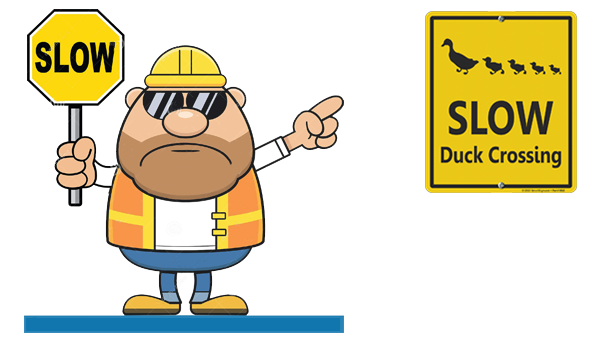
Adverbs
Adverbs are words that modify verbs (He sings well) adjectives (extremely tall) and other adverbs (The concert finished too early).
FUNCTION OF ADVERBS
1
ADVERBS AND VERBS
One function of adverbs is to modify verbs. They tell us how somebody does something or how something happens.
He always approaches the problem carefully.
I will seriously consider your offer.
It is raining heavily.
It happened unexpectedly.
He jumped off the bridge suddenly.
Many adverbs are formed from an adjective + –ly.
quick/quickly, careful/carefully, quiet/quietly, heavy/heavily, bad/badly
However not all words ending in –ly are adverbs. Some adjectives end in –ly too.
friendly lively lonely silly lovely
We form adverbs by adding a phrase in a … way/manner. Study the following sentences.
Kelly is a friendly person. (adjective)
She talks to everybody in a friendly manner. (adverb)
Sally is being silly these days. (adjective)
She is talking in a silly way. (adverb)
Some adverbs have the same form as related adjectives. They are called flat or bare adverbs. They don’t end in –ly. These adverbs are as follows: late, early, hard, fast, long, high, low, deep. Interestingly enough, some of these adverbs have their -ly counterpart with different meanings (such as late-lately or hard-hardly) while others (slow-slowly) can be used interchangeably with no difference in meaning. Study the following examples:
Carol is a fast runner. (adjective); Carol also drives fast. (adverb)
Jack, you’re late again. (adjective); Jack got up late this morning. (adverb)
I haven’t seen you lately. (adverb – meaning recently)
She usually works hard but today she’s hardly done anything. (hardly = almost nothing)
Rachel can jump high. She thinks highly of her coach.
Just put it close to my desk.
This topic is closely related to the previous one.
In some other cases, especially in colloquial English we simply drop the –ly form and use the adjective form instead, even though they sound grammatically incorrect.

Slow. Duck crossing.
Take it easy.
Hold me tight.
I bought a jacket dirt cheap.
Can you lend me a few hundred dollars? Sure.
However, there is a type of verb that normally doesn’t go with an adverb.
Linking verbs such as be, seem, look, feel, sound, appear, turn... need adjectives. Using an adverb with these verbs is a common mistake among English students.
incorrect: Jenny looks sadly.
incorrect: Suddenly the weather turned badly.
incorrect: The song sounds well.
2
ADVERBS AND ADJECTIVES
Adverbs can also modify adjectives and other adverbs. Often, the purpose of the adverb is to add a degree of intensity to the adjective.

‘If you look really closely, most overnight successes took a long time.’ Steve Jobs
The property was reasonably cheap, so I bought it.
The English test was completely impossible.
After the flood, all the houses in the village were seriously damaged.
The progress was surprisingly fast, which surprised the government officials.
3
ADVERBS AND OTHER ADVERBS
We can use adverbs to modify other adverbs too.
Sam learns languages incredibly easily.
She did the test quite well.
My wife is almost always right. Except when she is not.
It was too late to take any serious actions.
4
SENTENCE ADVERBS
Some adverbs don’t modify particular words in a sentence, instead they modify an entire sentence or a clause. They tell us how the speaker or the writer feels about the content of the sentence. Most common sentence adverbs are as follows:
apparently, basically, briefly, certainly, evidently, fortunately, hopefully, indeed, interestingly, ironically, naturally, predictably, presumably, strangely, surprisingly, thankfully, theoretically, and wisely.
Strangely, none of the managers noticed what was going on in the sales department.
Not surprisingly, the new contract has been refused, so we had to stop with the project.
Hopefully, we will be able to turn the situation in our favour.
Briefly, we have to cut down on expenses, otherwise the company will go bankrupt.
Thankfully, nobody was seriously injured.
Wisely, she refrained from talking until her attorney arrived.
Seemingly, she was happy with the proposal but deep in her heart she knew it wouldn’t work out.
Predictibly, the prices were high, given that it was a five-star hotel.
ADVERB PLACEMENT
If an adverb modifies adjectives or other adverbs it always comes before the modified word; absolutely beautiful or recently finished. In other cases, placement of adverbs depends on the function of adverb in the sentence and the sentence structure. Some adverbs can appear in multiply position, others have less freedom in the sentence. Study the following examples:
At the beginning of a sentence
The comma is mandatory after however, in fact, therefore, nevertheless, moreover, furthermore, and still. Some adverbs, such as always, ever, never, often cannot begin a sentence.
Usually she forgets what she promises.
Unfortunately, she didn’t keep her promise.
Sometimes the weather in April is unpredictable.
In fact, that was far the best solution for both parties.
Before the main verb (exept for the verb ‘BE’)
It suddenly dawned on me that she was just pulling my leg.
They usually surprise me by dropping in without invitation.
I am always late.
The summer is usually hot and humid.
In verb phrases adverbs come between the modal and/or the (first) auxiliary and the main verb.
It will hopefully be better this time.
She is constantly borrowing money from me.
I have always been interested in astronomy.
I would never have done such a stupid thing.
At the end of a sentence
Adverbs of manner (carefully, slowly, badly, silently, well etc.) and time adverbs (today, every day, this week…) usually but not always come to the end of the sentence.
I explained her the problem tactfully.
The psychologist approached to the topic carefully.
She always talks to me politely.
I haven’t done much today.
To my greatest surprise, she did it quite well.
In the case of a longer object or in a sentence with subordinate clause adverb of manner comes before the verb.
He greedily ate up all the food left in the kitchen.
The nurse silently opened the door so as not to wake the children up.
STILL, ONLY, HOWEVER and YET
STILL means something is ongoing and hasn’t finished because of something else. It comes before the main verb and also before the auxiliary or the modal, if there is any in a sentence. However, verb ‘BE’ is an exception to this rule. Again. Study the following examples:
‘I still haven’t found what I am looking for.’ Bono
I still can’t believe what she’s done to me.
Do you still love me, baby?
Don’t worry too much; there is still some time left.
ONLY is a modifier and it can take different positions. In order to create a clear sentence, we should place “only” before the word we want to modify. Or after. You’ll see what I mean.
Only John feeds the dog. (his mother does not)
John only feeds the dog. (he doesn’t take it for a walk)
John feeds only the dog. (he doesn’t feed the hamster)
John feeds the dog only.
John feeds the dog only on weekends. (that’s why it’s so skinny)
HOWEVER can be a conjunction or an adverb with multiple meanings and as such can take different positions in a sentence and require different punctuation rules.
We believed our work was flawless. However, just a day later we discovered a major problem. (adverb – to show contrast)
The good news however is that the manager approved our claims. (adverb – to show contrast)
It was an expensive course; however, it was worth it. (in spite of that, yet – adverb)
However you look at it, it’s still a huge problem. (adverb – in whatever way)
However carefully I explained, she couldn’t grasp the point. (adverb – to whatever degree)
However did you manage to convince him? (to express surprise – adverb)
YET means something that we expected hasn’t happened. In this case, we put YET at the end of a questions or a negative sentence.
They haven’t arrived yet.
Are you ready? Not yet.
Have you had lunch yet?
This has been her best performance yet. (to express excitement)
YET can also be a conjunction (connecting phrases or clauses) with different meaning. Study the following examples:
It was a sunny day, yet chilly and windy. (instead of BUT)
On most days I play tennis, yet my favourite sport is football. (instead of NEVERTHELESS)
Yet, I must admit, I do miss her. (to give a tone and flow to the sentence)
Ms. Stevenson has done a lot to make people’s life better, and yet very few people acknowledged her work.

Do the QUICK TEST and check your knowledge on adverbs. After finishing the quiz, the correct answers will be shown to you.
brightonschool.info
© Copyright 2023
® All rights reserved
GRAMMAR
Tenses
Passive
Conditionals
Adjectives
Adverbs
Prepositions
VOCABULARY
Collocations
Word Bank
Phrases
Idioms
Syllable Stress
Common Mistakes
TEST YOUR ENGLISH
Take a Level Test
Test Bank
INFO
About Us
Get in Touch
Disclaimer